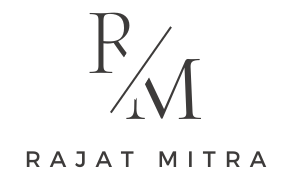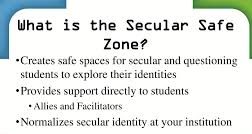Diagnostic and Statistical manual called DSM 5 has many a diagnosis of emotional issues that ends with the word disorders. Mental health professionals all over the world look frequently for new categories to be included in the manual. For example there is impulsive personality disorder, psychopathic personality disorder, schizophrenic personality disorder. The list has grown over the years with new diagnostic criteria being made with every new addition of DSM being brought out. Clinicians are always on the lookout for new cluster of behaviors that can be grouped together to form a new diagnostic category.
For sometime, I am also witness to a cluster of behaviors that I am seriously thinking of sending to those in charge of making additions to the manual. I am a little apprehensive because I see this cluster of behaviors only in India and rarely anywhere else. But I guess that doesn’t diminish its importance and it will soon find its rightful place in DSM 6 or 7.
It all began when I had been out of the country in 2014. It was just after the victory of Bhartiya Janata Party in the national elections held in April-May. I had been out of the country at that time. A friend and a journalist from a leading daily, had called me up and said, “Secularism has died now in India. BJP has won with a landslide majority. Good you didn’t vote. You would then have to live with this guilt that I had to see this day.”
Like many Indians I too had been taken by surprise by the overwhelming victory of Narendra Modi and was wondering the source of this victory but her message had temporarily shaken me up for the anger displayed by her. I had told her that though I am surprised by the election results, I do not share her gloom that secularism is dead in our country and will soon be extinct. To me secularism is deeply rooted in the Hindu ethos who are the majority and couldn’t be so easily destroyed. I am a Hindu and Bhagvad Geeta says all paths lead to God. Mughals, British couldn’t change the religion of Hindus and I am sure that Hinduism and its offshoot called by its other name ‘secularism’ would live in our country. And all said and done all over India aren’t the number of Mosques and Churches and Gurudwaras increasing steadily over last ten years. Even the neighborhood in Delhi where I live which is full of Hindus has more Churches and Mosques that have come up in last ten years.
“I will quote you on this. You just wait and see how India changes. Now, I have to write an article.” She had said and disconnected the line. I had thought of her statement as an overreaction and forgotten this incident.
Next year I came back to India. There were elections in Delhi, Bihar and Bengal. I heard from her a few times over different issues and saw a post by her saying secularism has won in these states. She wrote how people of these states have voted against communalism and it is triumph of secularism all over again taking place in India.
I heard from her some time ago the day Yogi Adityanath was announced as the chief minister of UP. “This is surely the death knell of secularism,” she had said, discussing the choice. “Do you know how terrified the minorities are now in UP? Even Shabana Azmi has given a comment that secularism is under threat this time.”
“How is secularism under threat this time?” I asked, a little taken aback by her conviction.
“Can’t you see it? Isn’t it obvious? How can you ask this knowing what BJP has done in Gujarat to minorities?” She was deeply offended by my remark. “You are apolitical, I know, so how can you say such a thing?”
“I am by large apolitical but I also don’t see the connection between the two. There have been so many riots in India but secularism remains untouched.”
“May I ask a few questions?” she asked. “Don’t you think we will have the constitution changed to bring Hindutva and Hinduism made official religion?”
“No, I don’t think so.”
“Won’t minorities be running away from Hindus from different parts of India?”
“No, that is unthinkable to me. Its opposite may happen.”
“Will Adityanath not try to impose his will on the Muslims?”
“No, he can’t do that. If he tries that I will be first one to protest on the streets.”
“Will they stop further building of mosques?”
“No, they can’t do that. Besides there are already too many.”
“Will they not start discriminating against minorities?”
“No, Muslims themselves wear caps and try to be different. They have identifying signs for separating themselves from others. So have Sikhs and even other faiths. We have all coexisted for centuries.”
“So you think I am unnecessarily perturbed. My editor has asked me to write an article on death knell of secularism in India. I have got excellent points from other intellectuals corroborating my position. Only you seem to differ.”
“Honestly, I believe you are overreacting. My request to you would be to write on the secular nature of Hinduism and Hindus. That is what I am proud of and I don’t think anyone can equal that.”
“But isn’t there a fear in people now?”
“Has anyone stopped going out of their homes? Do you see less people on roads?” I asked.
“Why do you say that?”
“When a community is petrified, their members stop going out of homes. Like Jews under Nazis or Hindus in Pakistan. By and large, most Sikhs stayed inside for six months after the 1984 riots. Do you see anything like that now?”
“But that may happen soon.”
“Will it? I hear more sounds of azan than before.”
She got angry at that and said, “Are you not making fun of what I am trying to say. I have gone and asked ordinary people how they feel. I have spoken to many of them and they are not comfortable with either this win or this choice.”
Aware that I may have unknowingly affected her, I asked, “Is secularism of our country linked to how some people feel or someone coming to power?”
“No, but it is the beginning,” she said.
“Aurungzeb couldn’t change that. BJP was there earlier too. Secularism in our country didn’t change,” I said.
“So you don’t think it will change.”
“No, because secularism is an ideology, an institution and majority of Hindus have it as their identity that goes inside their psyche. It can’t be uprooted so easily.”
“So, you think I am building it up. So many others feel like me,” she asked in a lighter vein. “How will you classify it,” she asked, “since you are a psychologist.”
“I will call your condition secular identity disorder. I understand you are not the only one who seems to have this.”
I could feel her laughing on the phone. She stopped the conversation and asked me to write its symptoms.
I sat back and wrote a few lines and sent it to her saying if she has majority of the following symptoms then she should think of herself as suffering from ‘secular identity disorder’.
For those not familiar with diagnoses in mental health, DSM called Diagnostic and Statistical manual lists out different conditions called x personality disorder and y personality disorder based on a set of behaviors that are distinct, unique and indicative of a certain personality type.
I have tried the following on the same pattern:
If you have had atleast one of the symptoms in the last four years and atleast two others over a period of six months then you can be classified as suffering from ‘Secular Identity disorder’:
- Every time one of the so called designated ‘secular party’ loses an election, you develop a phobia that secularism is under threat in India.
- You have carried the feeling 24*7 for at least six months after the win of the so called non-secular party in India.
- You associate the feeling with only one man, one party and deny that anyone else may have a role to play in it.
- It affects your thoughts, feelings and behavior profoundly that is observable to others. You are unable to control it on your own and feel like losing balance. You feel your individuality and identity are threatened and think it is happening to everyone.
- You have to talk, share about it repeatedly in peers group and feel like writing fiery articles about it.
- You believe before 2014 was the golden period of secularism in India.
- You have felt like returning your award and go to the press with a photo.
- You have nightmares about only one man as the destroyer of secularism in the country and lose sleep over it and often blame him till exhaustion in discussions.
- You feel elated when his party or representative lose an election and find your faith in humanity restored for the time being.
- You think that secularism in India is unique and different from the rest of world and is an invention imported from the west with no connection to Hindu ethos.
- You have argued and almost felt like coming to blows with those who do not subscribe to your ideology of secularism and feel no guilt about it.
- All religious and ethnic violence and mayhem in India is the result of one kind of thinking and can be ascribed to work of only one party and one man.
The journalist wrote back to say she has almost all of above symptoms and she understands what I am trying to say. We laughed aloud this time over this. Incidentally, she showed it to her editor, a diehard fan of secularism in India. He threw it out of the window and asked her never to interview me again.
She asked me whether people suffering from secular identity disorder should consult a psychologist. I responded in my honest opinion there is no need for that. A necessary fact checking and listening to your conscience also described as inner voice by some can be sufficient to grasp what is the reality.
Disclaimer – This is an article to focus attention on an issue through humor.
I have no wish to include this in DSM-6 or any other manual.
It is a true story except for minor details that have been changed. I wish to add that I don’t wish to hurt any group or any person through this.
Lastly, I would love to hear your comments on this article. If I have missed any symptom let me know.
I haven’t seen ‘Secular Identity disorder’ outside India. If you have do let me know minus the Indian diaspora.

